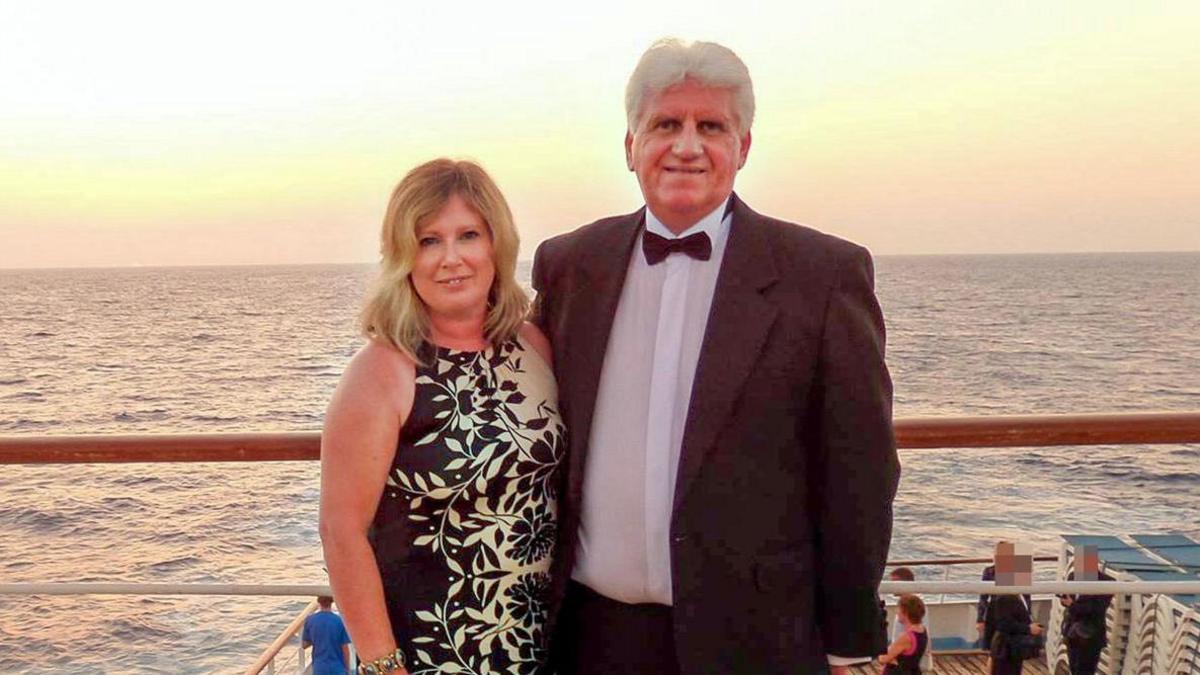'People in severe mental crisis need help'
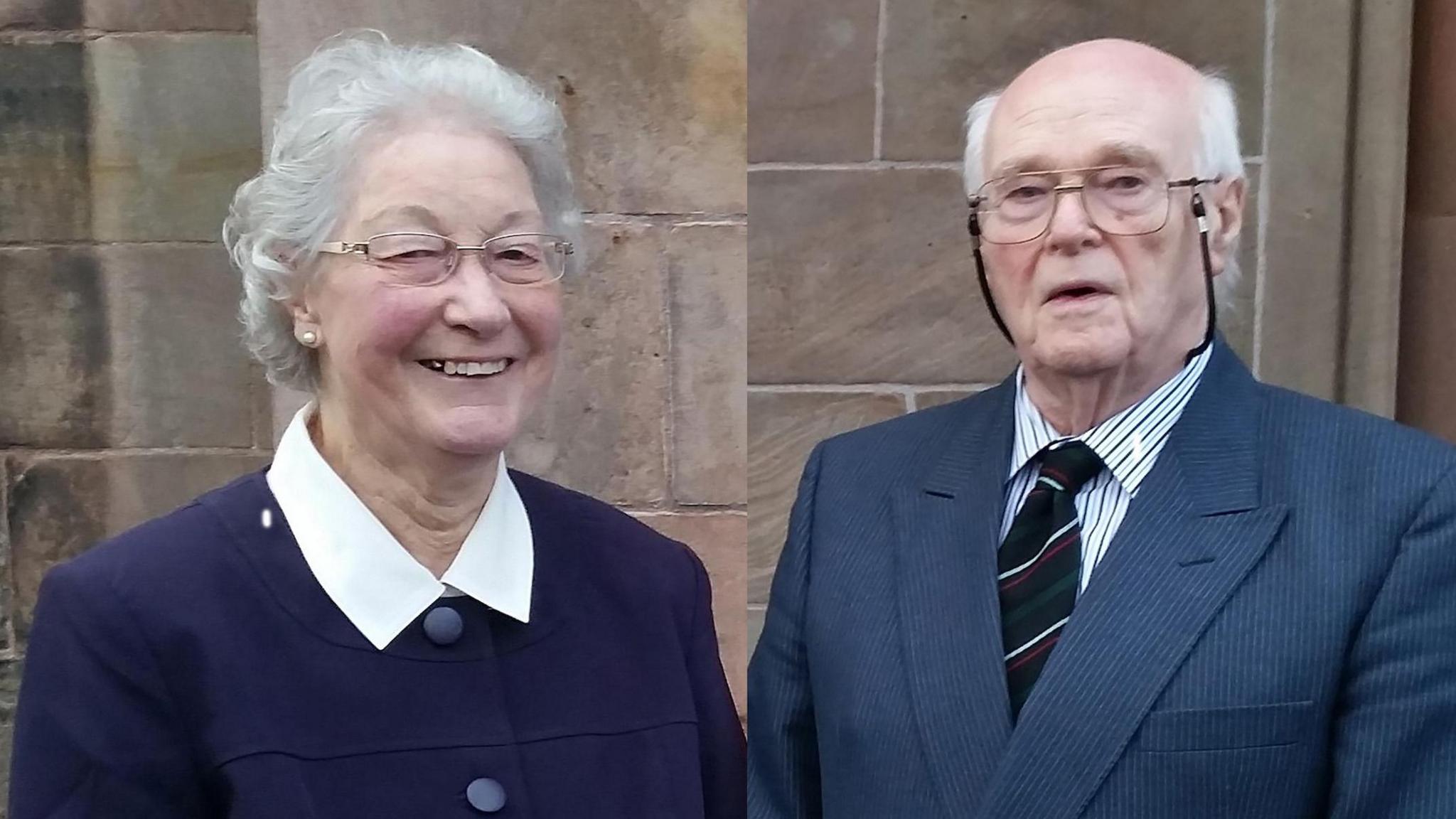
Michael and Marjorie Cawdery were stabbed to death in 2017
- Published
The son-in-law of an elderly couple who were were stabbed to death in Portadown in 2017 has said the case of a man who killed his wife is like "déjà vu".
Gary Alexander Baird admitted killing his wife, 60-year-old Susan Baird, at their home in Belfast in 2020.
He pleaded guilty to manslaughter by way of diminished responsibility.
At his sentencing hearing on Monday, Belfast Crown Court heard he made 570 calls to his GP to ask for help with his mental health but "none of them were answered".
Charles Little, the son-in-law of Michael and Marjorie Cawdery who were stabbed to death in Portadown in 2017, said not enough had changed since his relatives were killed.
Mr and Mrs Cawdery were killed in an attack in their County Armagh home in May 2017.
Their killer, Thomas Scott McEntee, was suffering from paranoid schizophrenia. He was sentenced to a minimum of 10 years in prison.
An inquest into the deaths last year heard McEntee was also a victim because he was failed by mental health services.
In the days before he killed the Cawderys, McEntee repeatedly came to the attention of police and health services as he battled severe mental illness.
Following the inquest, Mr Little said while the family could not forgive McEntee, he "should have been taken seriously" when he tried to get medical help before the killings
After Baird's pre-sentencing hearing, Mr Little said once they heard Baird had tried to get help "it really was déjà vu, here we go again".
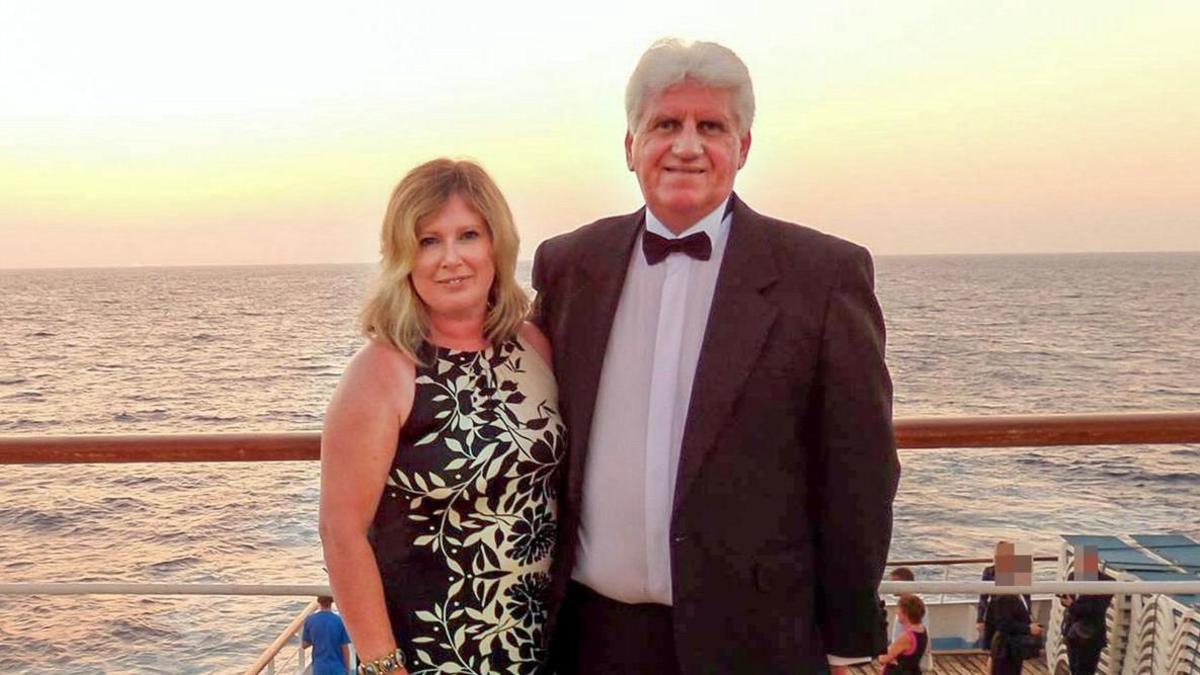
Gary Alexander Baird admitted killing his wife, Susan Baird, at their home in Belfast in 2020
"Once more someone in a severe mental health crisis was trying to get help and couldn’t," he told BBC News NI's Evening Extra programme.
"This is exactly what happened with Thomas McEntee who killed Michael and Marjorie," he said.
"It really was heart-breaking to see these things happen.
"When people are in a mental health crisis and they are trying to communicate there is no coherent system to pick up these messages and get people out to help these people and that’s really what desperately needs to be looked at."
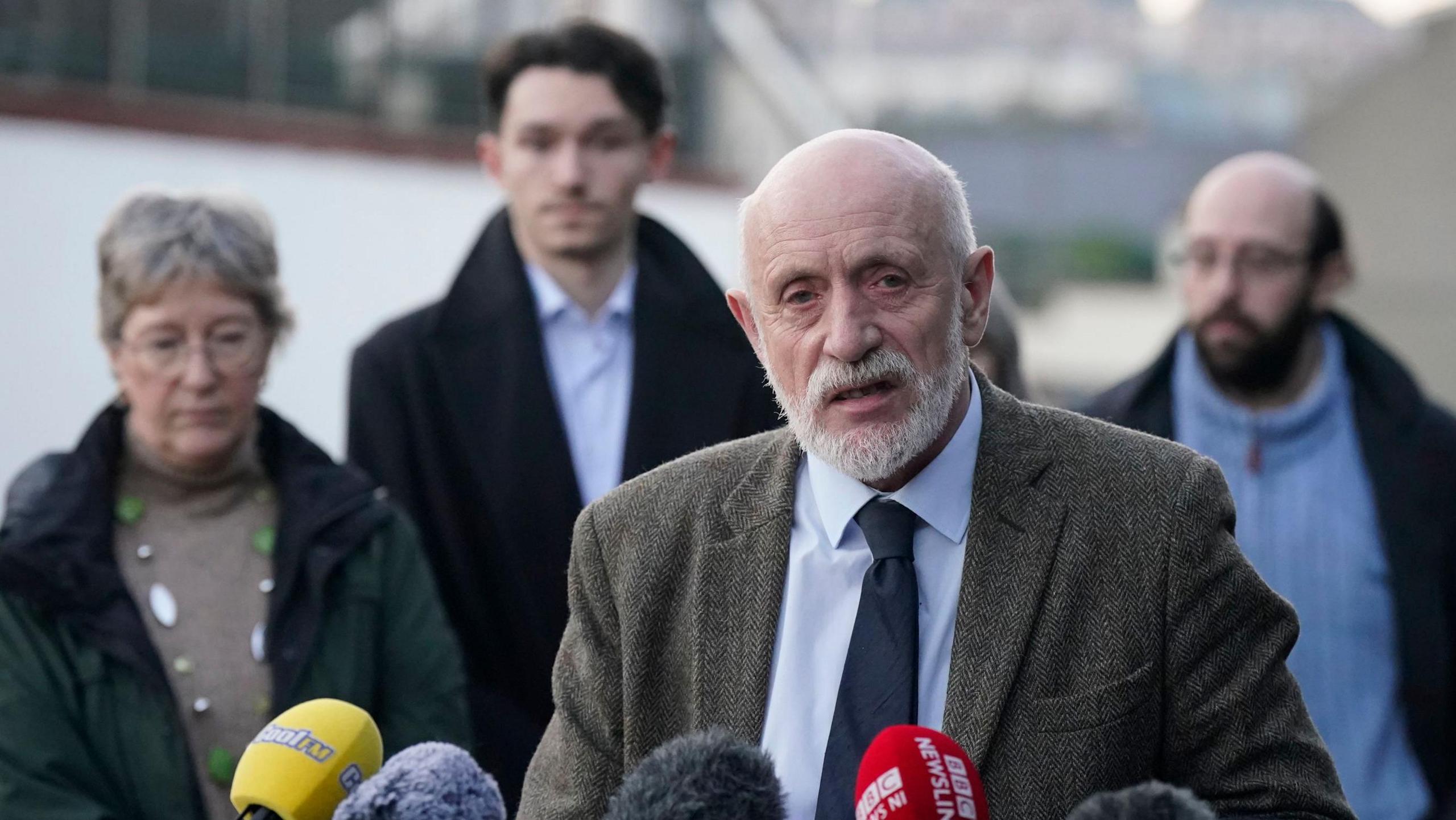
Charles Little (front) said the Baird case brought back bad memories
In June a Northern Ireland Assembly committee said the Department of Health must urgently prioritise mental health services here and that waiting lists for treatment were "unacceptable".
Speaking to BBC News NI on Tuesday Dr Frances O’Hagan from the British Medical Association said demand for GP services had risen exponentially at a time when there are fewer general practitioners.
“It can be difficult to get into the system and get to the right place and frequently that's what people come to their GP to help them navigate to get to the right place,” she said.
“Money will help, but it's also resources and percentage of resources. We're going to have to do something different with the resources we have.”
Mrs Baird died as a result of catastrophic head injuries after being attacked by her husband with a hammer at their Windermere Road home.
Belfast Crown Court heard Baird was "clearly unwell and heard voices in his head".
Following the death of his wife, he was detained in Belfast City Hospital's acute mental health unit for more than a year.
On Monday defence barrister Brian McCartney KC said "this was an impulsive act which culminated after weeks of psychotic torture that my client suffered".
Mr Little said the health service, health minister, police service and justice departments needed to work together to make changes to the system.
"I’d like to send my condolences to the Baird family, we here really feel for them," he said.
The Department of Health said the Cawdery inquest had highlighted the need for "robust and collaborative multi-agency working in dealing with mental health in Northern Ireland".
"The Departments of Health and Justice have now established a multiagency task and finish group to take forward the recommendations made by the coroner and ensure that vital lessons are learned." the statement added.
The Bairds' children were in court on Monday, as they have been throughout the case.
The court was told "they're here for both their mummy and their daddy".
"Mr Baird will eventually return to a supportive family. A loving family. This is a highly tragic case and requires a unique approach," the defence barrister said.
If you have been affected by any of the issues raised in this story you can visit BBC Action Line.
Related topics
- Published13 December 2023
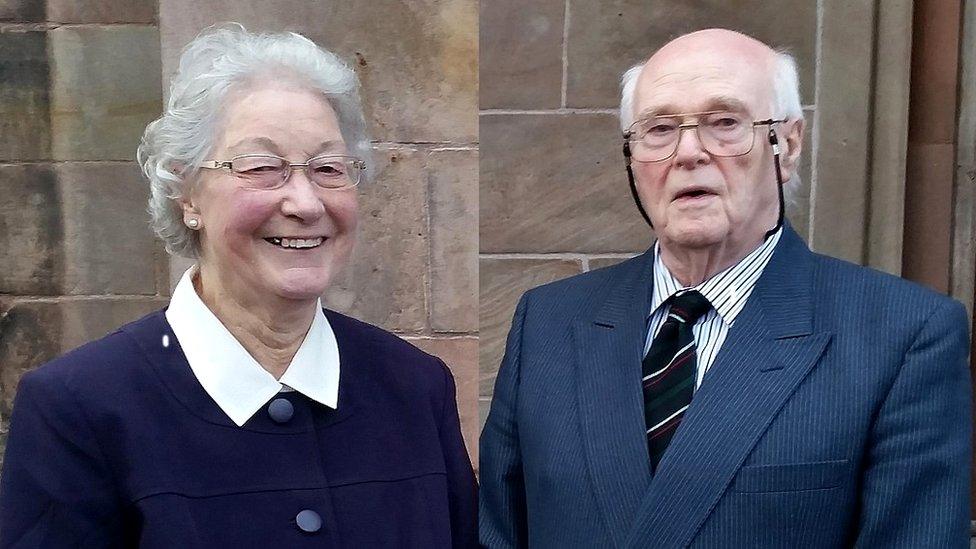
- Published8 July 2024
